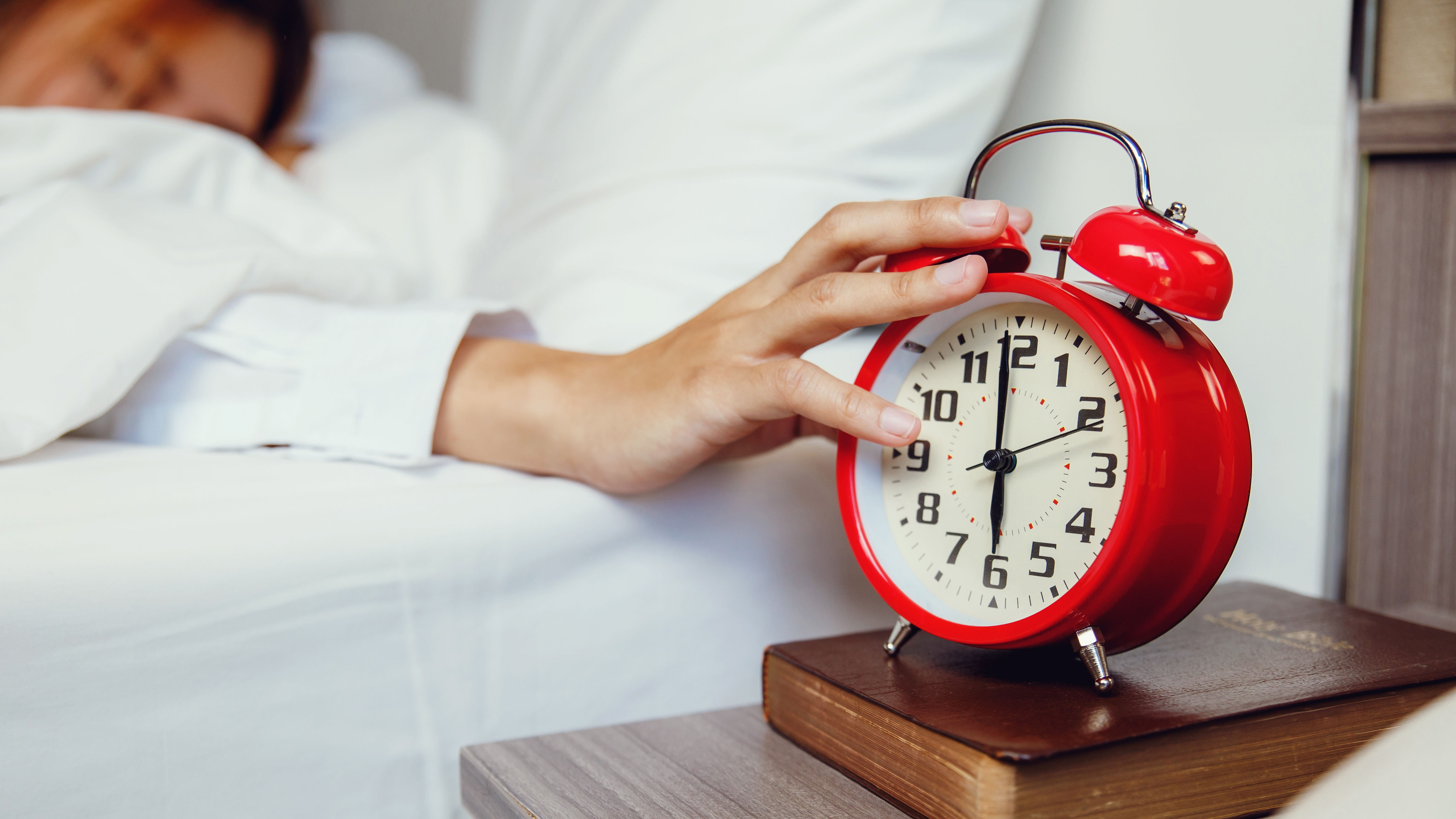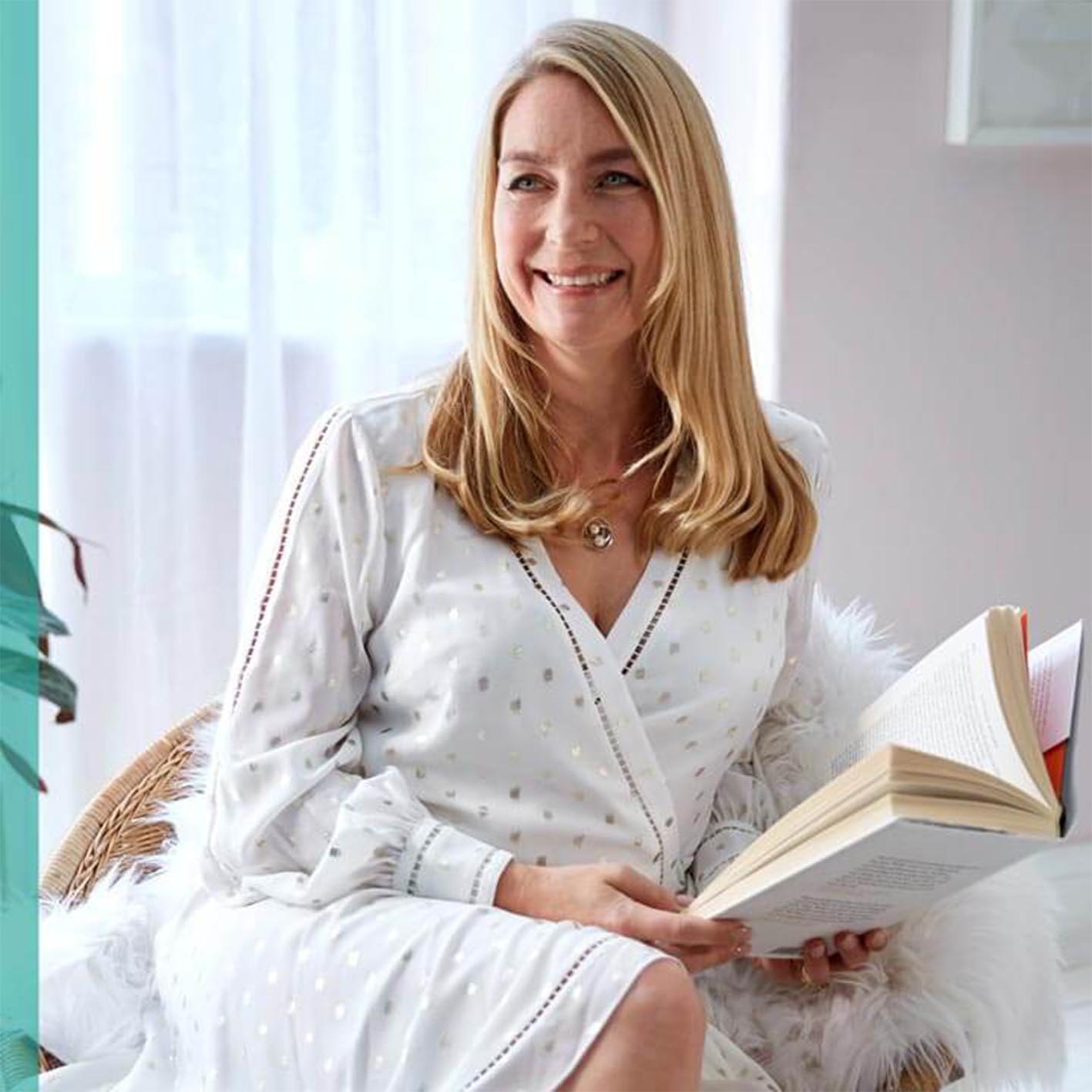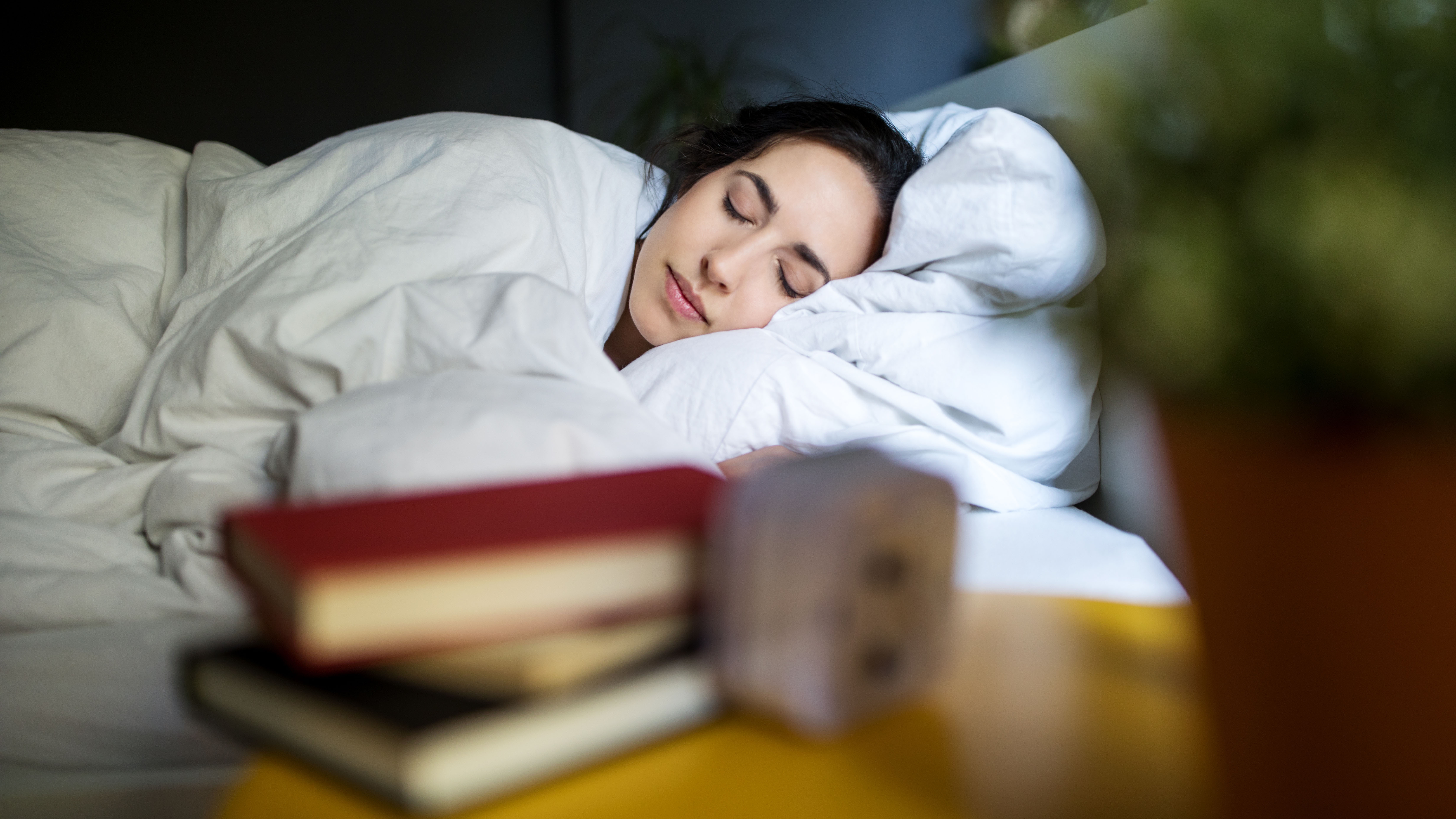The clocks change this weekend – a neuroscientist shares 3 sleep tips to help you prepare
The clocks go back this Sunday, and here's what that means for your sleep

In the UK, the clocks ‘fall back’ one hour at 2am on Sunday 29th October, meaning a whole extra hour in bed for you. (Psst, if you want to take your lie-in to the next level of comfort, have a look at our best mattress guide). While this is great news for those of us who are suffering from sleep deprivation, experts warn that some people’s sleep may be disrupted by the British clock change.
From next week, both sunset and sunrise will be an hour earlier, meaning darker evenings and mornings. According to Dr Lindsay Browning, a chartered psychologist and neuroscientist, this can lead to a lack of exposure to sunlight, which is important in establishing a healthy circadian rhythm (your body’s natural sleep and wake cycle).
“[The lack of natural light exposure] is one of the biggest problems with the clock change,” says Dr Browning. “We need bright sunshine exposure during the day to help regulate our circadian rhythm and help us to feel more awake during the day and help us feel more sleepy at night.”
How the clock change affects sleep and mood
As well as leaving us feeling groggy and sluggish, a lack of sunlight exposure can impact our mood, says Dr Browning. This is due to an overproduction of melatonin, a hormone that your brain produces when it’s dark to signal to your body that it’s time for sleep. What’s more, a common mistake many of us make when heading towards the end of daylight savings is staying up an hour (or more) later, knowing that we have the gift of a lie-in the following morning. This can wreak havoc on our sleep schedules, particularly if you then attempt to go to sleep at your ‘normal’ bedtime the following day.
“Most of us will lie-in on a weekend, so the adjustment in wake-up time is not too noticeable,” says James Wilson, AKA The Sleep Geek. “One thing to consider though, is that on Sunday night don’t delay going to bed to fall asleep at your ‘normal’ time. Your normal time that night will be an hour later than the day before, so it’s important to go to bed when you feel sleepy.”
For some, the darker days, plus the disruption to our sleep schedules, can signal the start of a season of sleep deprivation. Don’t be caught out by the clock change, here are three ways you can prepare now…

Dr Browning, BSc MSc (Oxon) CPsychol AFBPsS, is a chartered psychologist, neuroscientist, sleep expert and author of Navigating Sleeplessness: How to sleep deeper and better for longer. Dr Browning founded her sleep clinic, Trouble Sleeping, in 2006 to help people improve their sleep and wellbeing through the use of Cognitive Behavioural Therapy for Insomnia (CBT-I).
When do the clocks go back in Britain?
The clocks go back in Britain at 2am on Sunday the 29th October, which means we get an extra hour in bed this Sunday morning. However, with both sunrise and sunset shifting to an hour earlier, the clocks ‘falling back’ also signals the arrival of darker evenings and mornings.
Sign up to get the BEST of Tom's Guide direct to your inbox.
Get instant access to breaking news, the hottest reviews, great deals and helpful tips.
3 tips to prep your sleep for the clocks changing

1. Start adjusting your sleep schedule now
For most people, the clocks going back just means an extra hour in bed. For others, the clock change can throw their whole sleep schedule out of whack. “The reality is, we can adapt to a one hour clock change pretty rapidly, usually within a day,” explains Dr Browning. “But if you have anxiety about your sleep, then you'll be so anxious about it, that's going to override any ability if you're going to [cope with the] change easily and safely.”
In this instance, Dr Browning recommends gradually adjusting your sleep routine in advance. Three days before the clocks go back, start shifting your bedtime forward by 20 minutes at a time. This means that when the clocks go back on Sunday, you will have already adjusted to the new timezone. However, this will also mean that you won’t feel the benefit of an extra hour in bed.
2. Increase your exposure to natural light
Natural sunlight is hugely important when it comes to setting a healthy sleep schedule, as well as our overall health and wellbeing. “If you’re not getting any regular sunlight exposure, you won’t feel as alert and awake in the day,” says Dr Browning. “And also it might affect your mood – you might feel sad.”
The idea for a new British Summer Time was implemented in 1916 in an effort to make it safer for children walking home from school in the dark and to save on fuel costs. The idea was that by shifting the clocks forward by one hour in the spring and then back again in autumn, we could utilize the natural daylight instead of burning fuel.
To help beat sluggishness and stave off Seasonal Affective Disorder (SAD), a condition characterised as low moods and lack of interest in life during the darker months, Dr Browning advises that we boost our natural sunlight exposure. A ten minute walk in the morning or popping outside for half an hour at lunchtime will boost our Vitamin D levels, even during cloudy days. “Think about ways of getting some sunshine exposure, even when it's harder at this time of year,” says Dr Browning.
In addition to boosting your natural sunlight exposure, you could also consider investing in a SAD lamp. While the bright light emitted from these are designed to mimic the sunrise and boost the production of sleep-regulating hormones, Dr Browning recommends consulting with your doctor before using a SAD lamp, as they aren’t always appropriate for those with bipolar disorder.
3. Get your blood moving
We’ve already established that lack of natural light can leave you feeling groggy and sluggish. However, exercise can offset that by boosting your mood (thanks to the rush of endorphins you feel afterwards) and improving the overall quality of your sleep. Studies also indicate that exercise — whether it’s a brisk walk or something more strenuous, like a high intensity workout — lowers cortisol (stress) levels, which can improve our ability to fall asleep.
While exercise is hugely important for our sleep, Dr Browning acknowledges that it can be hard to find the motivation to venture outside during winter months. “The change in weather and season just makes it hard to do regular physical activity, but that's going to compound everything else,” says Dr Browning, who notes that winter is usually a time for increased alcohol consumption, richer foods and later nights. “All those things are potentially going to affect our sleep, and our general health as well.”

Nicola is the Sleep Editor at Tom’s Guide, where she helps steer the mattress and sleep content published on Tom’s Guide, including our Best Mattress for Back Pain buying guide. With a career in journalism spanning the best part of two decades, Nicola brings experience to the team and the knowledge of what makes a great article, whether that’s a how-to mattress cleaning feature, a deep dive into melatonin gummies, or an in-depth mattress review. As a sleep editor, few better understand how important a decent mattress is to the overall quality of our sleep, and precisely how our sleep impacts our physical and mental health. As well as tackling the vast topic of sleep, Nicola joins the raft of expert mattress specialists at Tom’s Guide, who test and compare a wide range of mattresses in order to guide readers towards the very best options on the market.
